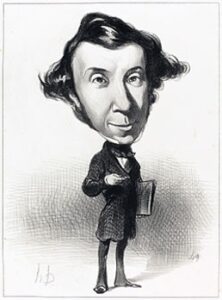
At 3:30 am on Thursday, April 20, 2023 I was watching cable news anchor Alex Wagner of MSNBC, who was analyzing the controversy involving two conflicting federal court rulings concerning the abortion drug Mifepristone. Wagner pointed out the federal district judge in Texas had been appointed by President Donald Trump. Ms. Wagner did not refer to the federal district judge in the state of Washington having been appointed by President Barack Obama. Wagner opined that these diametrically opposed court holdings and the U.S. Supreme Court’s attempts to reconcile them, “Could undermine the legitimacy of the courts.”
Naturally, Gentle Reader, your first thought is what was I doing watching television at three thirty in the morning and why would I watch MSNBC at any time? As to why I was awake, hey, I’m frequently responding to urges I never had when life was new. As to why MSNBC, I watch the news with my finger on the remote so I can attempt to outmaneuver the commercials. MSNBC happened to have the court story on instead of some offer of products guaranteed to enhance weight loss and other things, so I listened in.
It was Wagner’s views on the court system, not any exposition of Mifepristone, that piqued my attention. She said on national TV what may be a sub rosa thought with many Americans, “Why should we have confidence in the independence and reliability of our federal judges?” Are federal judges acting as Socrates demanded or are they deciding cases politically? Does a federal judge’s ruling depend more on the facts and the law or the judge’s political views and those of the president who appointed them?
In his trial before the Athenian judges, Socrates admonished his judges, “To do justice, not make a present of it.” In other words, a judge’s duty is not to repay his or her appointing politician, but:
“To hear courteously; to answer wisely; to consider soberly; and to decide impartially.”
Americans have for over 200 years supported the right of judges to be a separate and independent branch of our government. However, in our current national environment, many decisions from, especially the U.S. Supreme court, but more and more frequently also from the lower federal courts due to wide-ranging injunctions from one-person federal district judgeships, are seen by many Americans as political pronouncements.
Virtually every national debate about federal judicial decisions begins with a reference to the politics of who appointed the judge or judges and the history of the judge’s political leanings. It may be difficult to recall, but before our current turbulent social environment seldom was it alleged that, as justices Stephen Breyer, Elena Kagan and Sonia Sotomayor said in dissent to the abortion decision of Dobbs vs. Jackson, “Today the proclivities of individuals (Supreme Court Justices) rule.”

When even one third of the members of the U.S. Supreme Court publicly and in print accuse the other two thirds members of deciding cases for political reasons, it sounds an alarm about an independent judiciary. An independent judiciary is essential to maintaining our democracy. As long ago as 1835 Alexis de Tocqueville noted, “In America, practically every political question eventually becomes a judicial one.” De Tocqueville meant that Americans have confidence in the impartiality of our courts so they take their disputes to courts to be resolved.
It would be a shame if now de Tocqueville might have to conclude, “In America, practically every federal judicial question becomes a political one.” Perhaps next week, if I am still awake at 3:30 am, we might further address these volatile issues including some suggested remedies.
